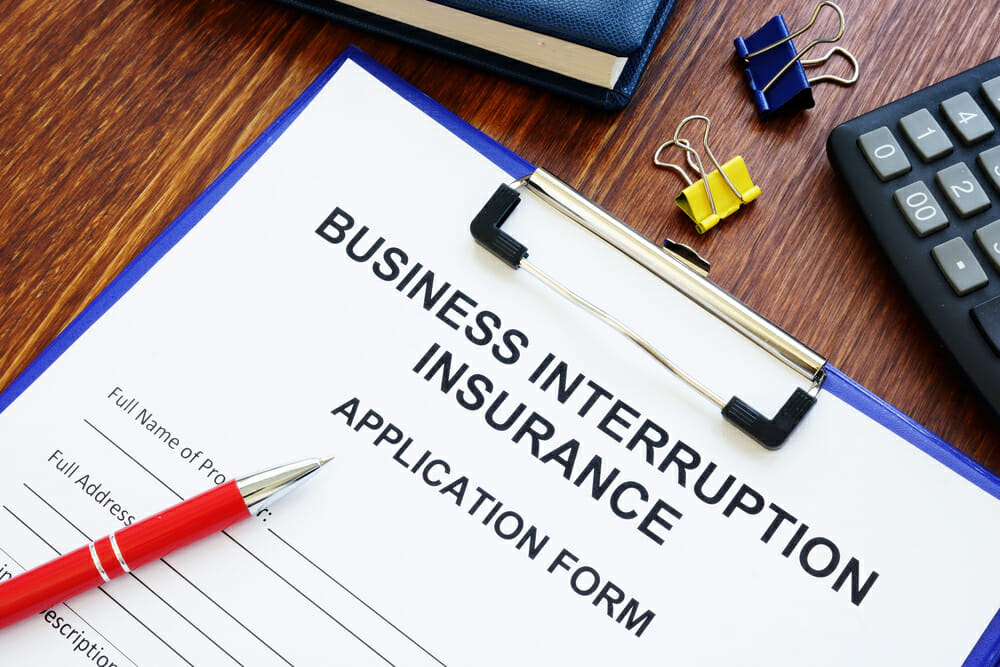We settle all kinds of property damage claims

BUSINESS INTERRUPTION LOSS
Trust ICRS public adjusters to settle your business interruption insurance claim
When a business interruption has devastated your life, calling a public adjuster about filing a business interruption claim can help you put the pieces back together.
- Commercial Property Business Interruption Claims
- Multi-Family Property Business Interruption Claims
- High-Value Homes & Real Estate Business Interruption Claims
Public Adjuster for Business Interruption
Business Interruption Insurance Claims
How to File a Loss of Business Income Insurance Claim?
Business income insurance policies cover businesses that lose income and incur expenses due to a covered loss, typically associated with physical damage or civil authority and dependent on your specific policy language.
1. Read the full policy for coverage, exclusions, deductible, your rights, terms, and conditions.
2. Put your insurer on notice of loss in writing if you anticipate a loss of income with an explanation of why you believe your loss is covered.
3. Submit your mitigation expenses and financial records evidencing your business’s actual and/or anticipated damages that exceed your deductible.
If your insurer denies or underpays your claim, they are required to provide you with a reasonable explanation.
Business interruption general information
Attention business owners: Has a fire or storm disrupted your business?
When commercial and multifamily property owners suffer a covered fire, flood, wind or another disaster that damages their buildings, we process both their physical property and the loss of business income. We’re experienced in interpreting policy language, documenting business income losses and most importantly, getting claims settled fairly
4 Things you need to understand regarding your business insurance policy
We encourage you to diligently understand the claims handling process you choose to follow, as it may make a significant difference between getting settled in months versus years. In order to determine if you have insurance coverage for business interruption, you need to take certain actions and understand 4 truths so you can make an educated business decision in order to determine the best course of action to protect your business, your rights, and revenue.
1. Read your full policy language regarding business interruption. Your insurance may have provisions and exclusions that could trigger coverage depending on what your policy says, doesn’t say, your circumstances and industry.
2. Know that as public adjusters, our firm has years of experience in successfully negotiating millions of dollars in business interruption insurance claims.
3. Get a complimentary review and consultation of your business insurance policy coverage as it relates to civil authority orders and viruses.
4. Ask your legal advisor if a licensed public insurance adjuster can legally represent your interest in handling your business insurance claim.
When putting together the BI claim it will be important to consider:
Policy
The BI insurance policy language is the underlying driver in claim acceptance. It sets out what is covered or excluded and the definitions to be applied in your situation.
Damage to the property
The BI insurance policy normally requires there to be damage to the business premises or other property.
Extensions
Your BI policy (or schedule) may include extensions or items that are covered in addition to loss arising from damage to the premises. Extensions may include:
- Prevention of access to the premises (e.g. civil authority orders);
- Interruption to the supply of goods and services (e.g. loss of electricity and water);
- Interruption caused by damage to the premises at suppliers and customers. (Supply chain interruption)
Exclusions
The BI policy will include a list of exclusions or items that are not covered by the BI policy. Some BI policies specifically exclude the loss arising from damage caused by natural disasters including earthquakes and viruses.
Financial loss
The financial loss suffered will normally need to be as a result of damage to the business premises (or covered by extension and not excluded).
Presentation
The presentation of your claim is critical. The insurer processing your claim is likely to be dealing with thousands of claims and have limited knowledge of your business. It is important that you provide your insurer with all of the relevant background and financial information needed to process the claim. We recommend you provide your insurer with the following:
a) A brief cover letter providing:
- An overview of your business including the location(s) of your business;
- Details of the damaged premises, details of prevention of access to the premises or details of interrupted supplies/utilities;
- Current operations (e.g. did a tenant need to transfer, are you operating from new place of business or are you looking for new place of business, how long, how much is it costing you etc);
- Impact on trading (i.e. did your business completely shut down or were you able to partially trade);
- A timeline of key events;
b) Your method of calculation for your loss;
c) Supporting documentation for your claim calculation including evidence of a payments for any incurred costs and contracts entered into with the expectation of being incurred.
How are Business Interruption insurance claims calculated?
The intention of loss of business income or business interruption (B.I.) insurance is to put you back into the same financial position you would have had the damage and ensuing interruption not occurred. Typically, B.I. insurance covers four key aspects:
+ Loss of gross profit / rent
+ Additional expenses incurred (e.g. hire mitigation company)
– Savings in expenses (non recurring)
+ Reasonable claim preparation costs (e.g. accountant’s costs)
The approach to calculating your claim will depend on your BI policy language, your business and the records available. An example business interruption claim calculation is shown below:
| Example BI calculation | $ |
| + Expected sales (i.e. if the premises had not suffered damage) | 1,000,000 |
| – Actual sales | (200,000) |
| Reduction in sales | 800,000 |
| – Cost of sales (say 30%) | (240,000) |
= Reduction in gross profit |
560,000 |
| + Additional expenses (e.g. rental of temporary premises) | 100,000 |
| – Cost savings (e.g. lease of damaged premises) | (200,000) |
| + Claim preparation costs (e.g. accountant’s costs) | 50,000 |
= Total BI Claim |
$510,000 |
The calculation is conceptually straight forward. However, applying it can quickly become challenging when faced with the realities of:
- Incomplete records;
- Seasonality and trends;
- Determining the level of sales that would have occurred had the premises not been damaged given the change in demand following the occurrence;
- Determining the level of business successfully transferred to other properties.



Years Experience
Claims Settled
Hours Worked
Average Claim Amount
Risk-Free Loss Recovery Offer
Get a complimentary consultation on your business interruption insurance claim. We are business interruption claim adjusters who work for policyholders, not the insurance company. If you choose to hire us, we work on contingency. No recovery, no fee. Our business interruption insurance claim process is proven and streamlined. We also value your privacy. We do not sell, trade, or rent your personal information to others.
Need immediate business interruption insurance claim help?
TESTIMONIALS
What Client Says About ICRS
It pays to know ICRS – “747% Higher Payments with a Public Adjuster for Claims related to a 2005 Hurricane”
Frequently Asked Questions
What is a public adjuster and what do they do?
When should I hire a public adjuster?
How are public adjusters compensated?
How do public adjusters differ from insurance company adjusters?
Do I need a public adjuster if I already have an insurance agent or broker?






